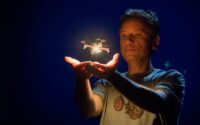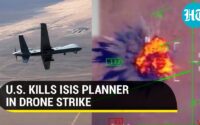Securing the Skies: Balancing Drone Technology Advancements with Privacy Rights
Privacy concerns surrounding drones have escalated as their popularity continues to grow. Drones’ accessibility and high-resolution cameras enable them to capture images and videos without individuals’ knowledge or consent, raising questions about privacy rights. Many countries have implemented regulations to balance the benefits of drone technology with privacy protection, such as restrictions on flight areas or capturing images without explicit consent. However, enforcing these regulations can be challenging due to drones’ small size and technological advancements that have outpaced legal frameworks, leaving privacy protection with significant gaps.
Privacy Concerns
Drones have become increasingly popular in recent years, offering exciting possibilities for photography, videography, and recreational activities. However, their rise has also raised significant concerns regarding privacy. The ease of use, affordability, and accessibility of drones have led to their widespread adoption, but they have also opened the door to potential violations of privacy rights.
One of the primary concerns surrounding drones is their ability to capture images and videos from the air, often without the knowledge or consent of individuals on the ground. Drones equipped with high-resolution cameras can easily invade the privacy of people in their homes, backyards, or public spaces. This intrusion into personal lives has sparked debates on the need for regulations to safeguard privacy in the face of advancing drone technology.
To address these concerns, many countries have implemented specific rules and regulations regarding the use of drones. These regulations aim to strike a balance between the benefits of drone technology and the protection of privacy rights. In some cases, drones may be subject to restrictions on where they can fly or when they can be used, especially in areas where privacy expectations are high, such as residential neighborhoods or government buildings.
In certain instances, drones may be prohibited from capturing images or videos altogether, unless explicit consent has been obtained from the individuals involved. Violations of these regulations can result in legal consequences, including fines or even criminal charges. Additionally, individuals who feel their privacy has been violated by a drone may have the right to seek legal remedies or file complaints against the drone operator.
However, despite efforts to regulate drone use, enforcing these regulations can be challenging. Drones are often small, nimble, and difficult to detect, making it difficult to identify and penalize individuals who misuse them for privacy invasion. Moreover, the rapid advancement of drone technology has outpaced the development of adequate legal frameworks, leaving gaps in privacy protection.



